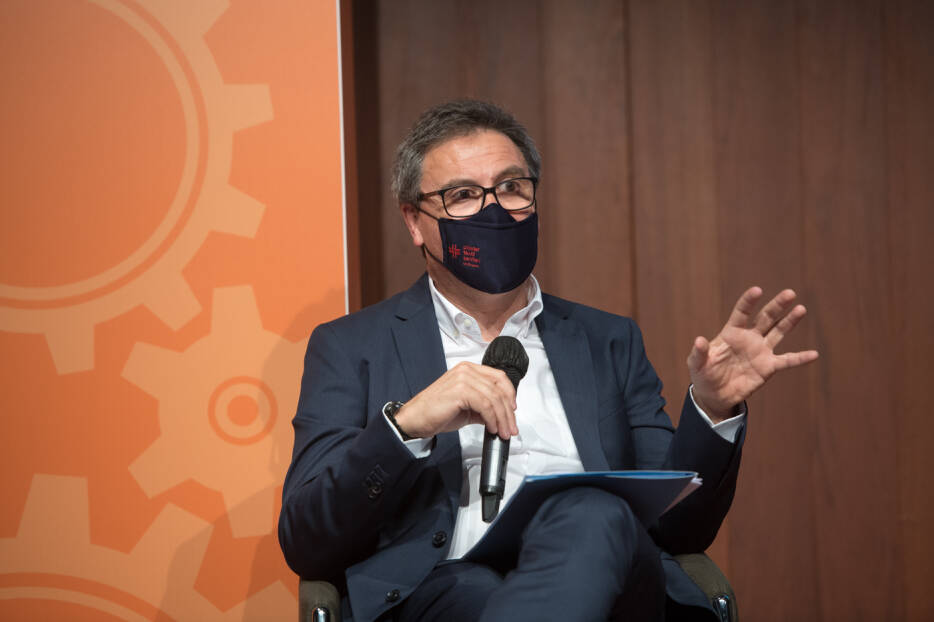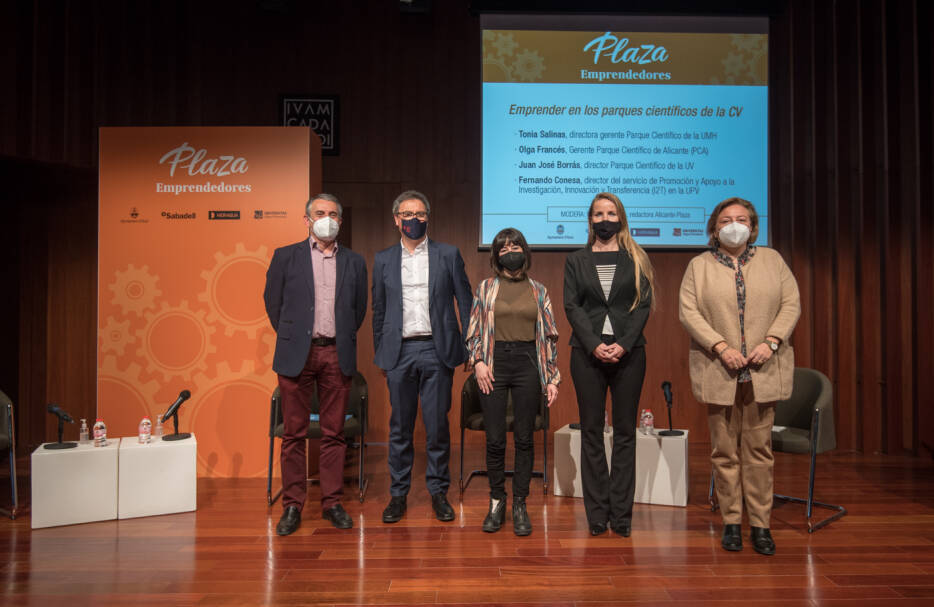At the event, organized by the Ediciones Plaza group, the heads of these innovation ecosystems highlighted the key role of public universities in the transfer of knowledge and in improving the productivity of companies.
The celebration of the Plaza Entrepreneurs Awards 2021 has consisted in the delivery in Alcoy of two awards to innovative projects -Best Startup (Declarando) and Best Transfer Project University / Company (3Dfils), but has also been the pretext to discuss key points of the Valencian innovative system, such as investment in startups and entrepreneurship in the five science parks of the Valencian Community.
The director of the University of Valencia Science Park, Juan José Borrás; the managing director of the Miguel Hernández University (UMH) Science Park, Tonia Salinas; the manager of the Alicante Science Park Foundation, Olga Francés; and the director of the Promotion and Support Service for Research, Innovation and Transfer of the Polytechnic University of Valencia, Fernando Conesa, moderated by Sandra Murcia, editor of Alicante Plaza, reflected on this last point.
The first question to be addressed was how science parks have worked in the context of the pandemic. In this regard, Tonia Salinas maintains that the companies installed in these ecosystems "have been able to adapt and reinvent themselves during this period of crisis". Among other reasons, because they have "a DNA based on very powerful technology and innovation" and also "they are characterized by being connected and used to collaborating with the rest of the agents in the ecosystem".

Juan José Borrás, director of the PCUV, during one of his interventions in the debate. Source: Valencia Plaza
After the journalist Sandra Murcia asked about the challenges faced by these innovation ecosystems and the role of the university in promoting knowledge transfer, Olga Francés stressed that "science parks are business innovation ecosystems promoted by universities". In this sense, she indicated that companies count on the parks "as hinges to interact with the university" and to "access the talent of research groups, students and graduates". "I think this could be exploited much more, not only by the spin-offs, but by all the companies in the territory. We can help them a lot to improve productivity, to solve business challenges and we have programs to promote the transfer in both directions," he stressed.
For his part, Juan José Borrás remarked that the main challenge of these environments is "to help the projects that arrive to grow, to develop, and for this to happen we have to work together with entrepreneurs and research groups. In a science park one of the key words is cooperation, so it is essential to facilitate the interrelationship and promote communication between the different agents".
European regeneration funds
The director of the PCUV also pointed out a much more novel challenge: "To fight for part of the European regeneration funds, funds that will one day materialize, to reach the science parks. We have shown that we can manage this type of resource and therefore, we can be a lever of support for public administrations to invest these funds in a rational way and to make them profitable for society in the medium and long term".
To conclude, Fernando Conesa focused on the value of the university for companies because "it can provide them with graduates and doctors, it can train their staff, it can provide them with knowledge, technology and R&D, and it can provide them with opportunities for new businesses". "Transfer means supporting innovation in our territory, in our environment and with our companies," he concluded.
The author of the photographs contained in this news item is Rafa Molina.


